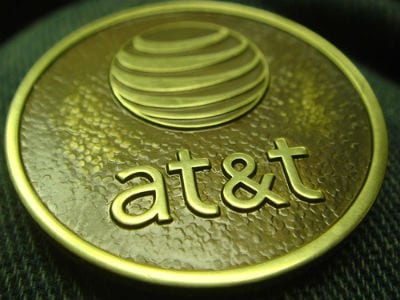The immediate reaction in the press to news of the Federal Communications Commission’s staff report detailing its reservations in green-lighting a proposed $39 billion merger between mobile carriers AT&T and T-Mobile was that the deal appeared to be toast.
 The 109-page report, prepared by FCC staff, raised serious doubts about claims made by the telecoms that a merger would result in added jobs and greater high-speed nationwide coverage. The report comes on the heels of news earlier in the week that AT&T had formally withdrawn its merger application to the agency. The company is reportedly hoping to concentrate on a separate court date — scheduled for February — with the Justice Department, which has its own concerns about the deal. AT&T may still re-apply with the FCC later.
The 109-page report, prepared by FCC staff, raised serious doubts about claims made by the telecoms that a merger would result in added jobs and greater high-speed nationwide coverage. The report comes on the heels of news earlier in the week that AT&T had formally withdrawn its merger application to the agency. The company is reportedly hoping to concentrate on a separate court date — scheduled for February — with the Justice Department, which has its own concerns about the deal. AT&T may still re-apply with the FCC later.
However rumors are now circulating that the companies have begun discussing a Plan B, in which the mobile providers would, rather than formally merge, instead form a joint venture in which they would pool some assets together. AT&T is said to be mostly interested in obtaining access to T-Mobile’s wireless spectrum, which would position the company to offer the largest 4G network in the country. If the two companies merged, AT&T would become the largest carrier in the U.S.
It’s hard to say exactly what these new twists could mean for enterprise business. On the one hand, AT&T claims that a merge would greatly increase access to its 4G LTE network. On the other, both the FCC and DoJ seem to agree that a scenario in which only three companies — Sprint, Verizon, and a newly merged AT&T/T-Mobile — control 90 percent of the wireless market would reduce overall competition and lead to higher voice and data rates.
Either way, it’s a case worth keeping an eye on if your company relies heavily on mobile devices.
AT&T, T-Mobile Mull Plan B
The nature of the joint venture that AT&T and Deutsche Telekom have discussed is unclear. Analysts have suggested that under a joint venture, the two companies could jointly use the T-Mobile spectrum that AT&T covets while Deutsche Telekom holds onto its T-Mobile customers. …
At the same time, the nation’s largest wireless carrier is in talks with smaller players to divest itself of some assets, including customers and spectrum, in hopes of satisfying regulators’ concerns that the proposed deal will be anti-competitive. Such divestitures, ideally to one buyer, are intended to help build a stronger wireless player that could compete with the behemoths and preserve choice for customers.
Read more from The Wall Street Journal.

Share this: